Lesbians have ‘always had to fight to be heard’, says Stonewall founding member
Stonewall founding member Fiona Cunningham-Reid tells Frankie Lister-Fell how it all began
Saturday, 10th February — By Frankie Lister-Fell
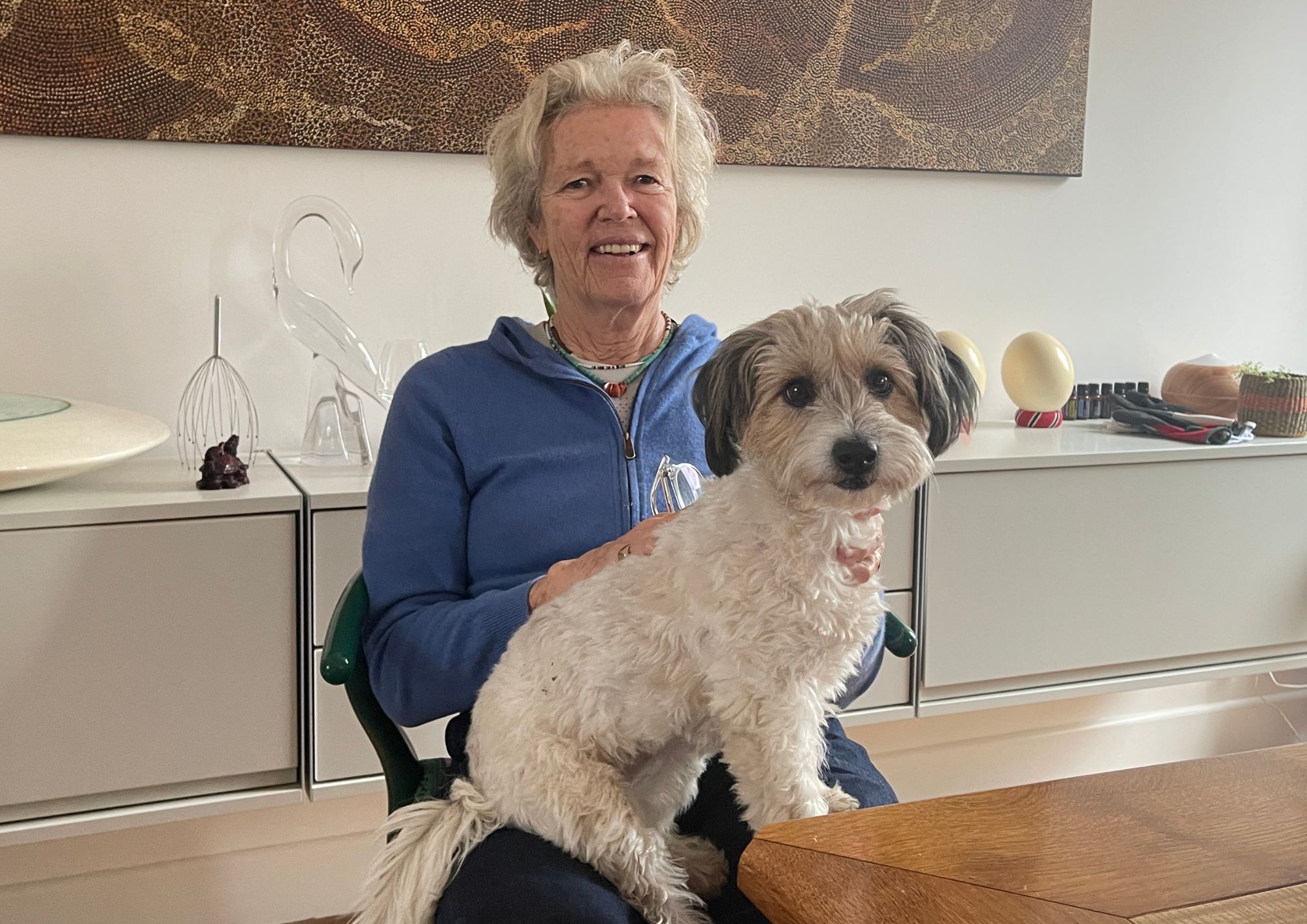
Fiona Cunningham-Reid with Coco
“THERE’S always a battle to get lesbians heard – at whatever level at whatever organisation across the world,” a Stonewall founding member said this week.
Fiona Cunningham-Reid, a filmmaker and Hampstead resident, was one of the original 12 founding members of what has become the UK’s biggest LGBT+ rights group.
She spoke to the New Journal about Stonewall’s genesis in 1989.
She was approached by her friend, another Stonewall founder Douglas Slater, who was building a campaign against Section 28 legislation that banned schools and local authorities from “promoting homosexuality”.
Ms Cunningham-Reid recalled: “Dougie was chief clerk and private secretary to the leader of the House of Lords. He knew how government legislation worked. And he knew who was gay in government who was not out and how the laws were being changed.
“I think that’s why he thought it should be a lobbying organisation rather than another protest movement on the streets.”
Stonewall was founded by high-profile members, including actor Sir Ian McKellen and former Tory MP Matthew Parris, who were the “suits” side of the campaign “that could get into Downing Street”.
Ms Cunningham-Reid said: “We had to really fight to get women onto the board on Stonewall to get some lesbian visibility. Women have to fight to have their voices heard. Around the dreadful Aids time, a lot of women were helping and they were often not acknowledged for their role. Men were not interested in women’s rights and lesbian rights.”
Stonewall members were a broad church, but the hatred towards Section 28 united everyone.
In 1994, Stonewall organised an age of consent rally in Trafalgar Square, which called on the government to lower the age of consent for gay men from 21 to 16, to match that for straight couples.
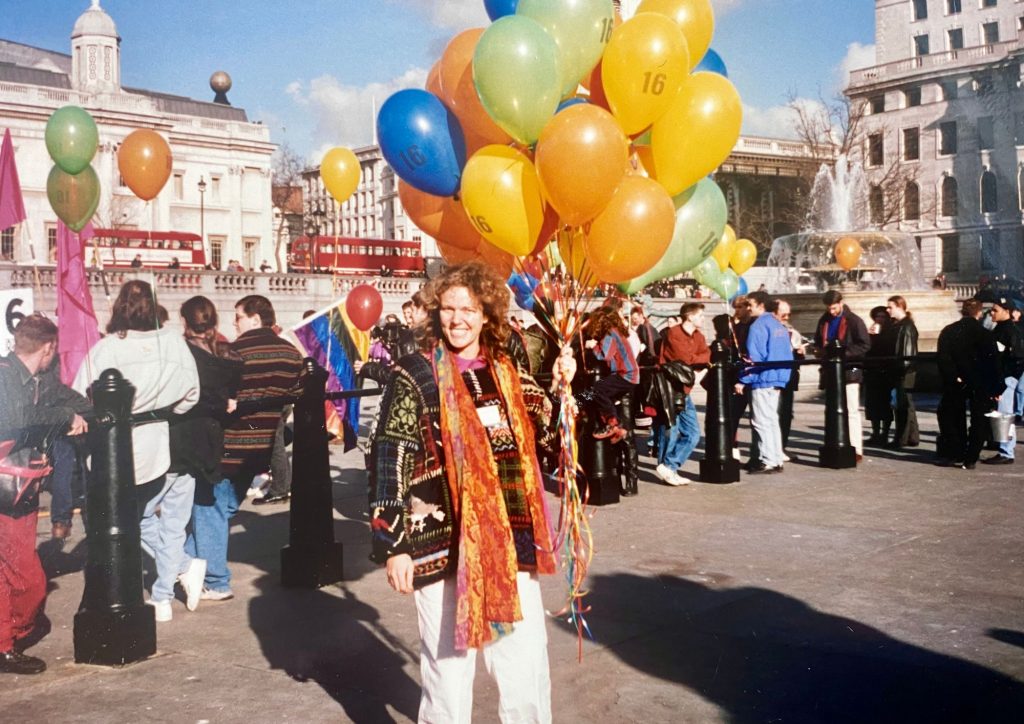
Fiona Cunningham-Reid at the age of consent rally in 1994 and, below, high profile support
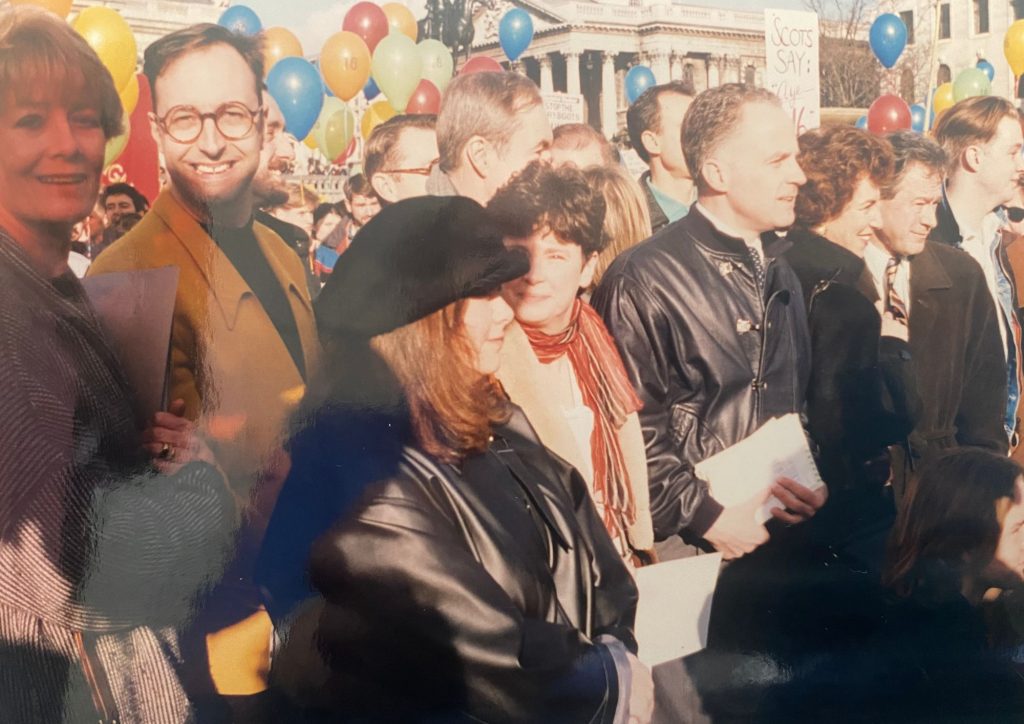
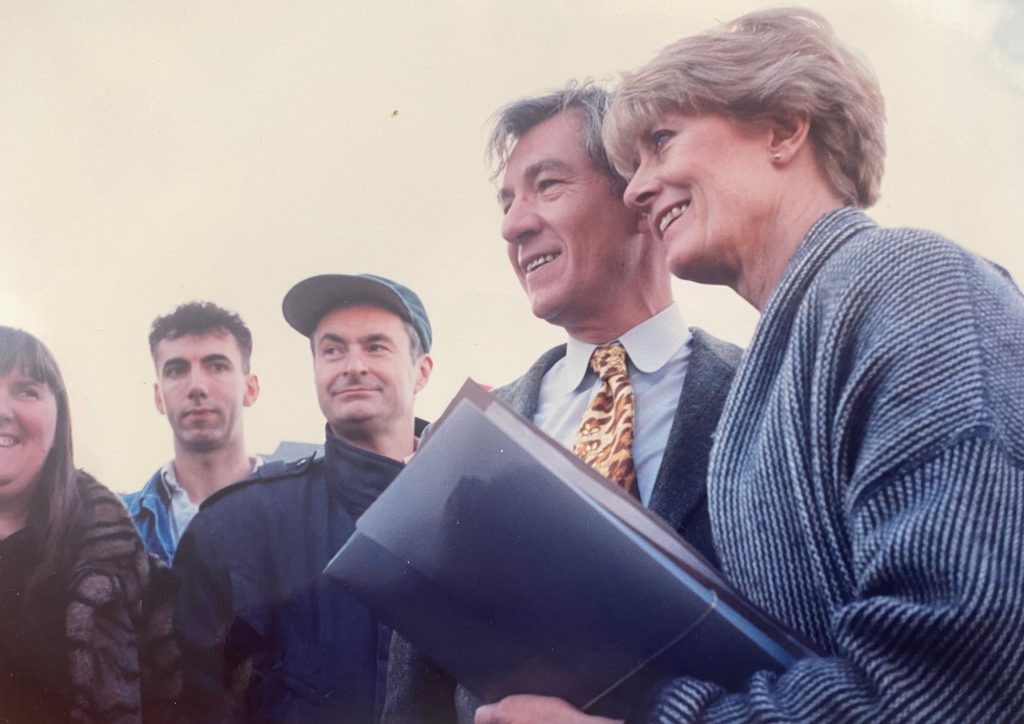
Atonement actor Vanessa Redgrave, Dawn French and MP Edwina Currie attended.
“The thing I most remember about it was that we got there early and it was all the lesbians blowing up the bloody balloons,” said Ms Cunningham-Reid.
“All the gay guys were still at home in bed. It felt completely bonkers.”
At the time, Stonewall’s founder felt the movement needed a more mainstream forum for bringing change aside from radical protest groups, “who did fantastic work in terms of visibility”, she said.
Ms Cunningham-Reid said: “There was a lot of opposition from I think OutRage, like Derek Jarman and Peter Tatchell. They had done so much work over the years, so much work for Aids and they were fantastic.
“I think they thought that Stonewall coming along was going to suck up all the work that they had done and not acknowledge them or cooperate moving forward. There was a lot of friction. But in the end, everyone became best friends.
“In a way, they were right. There was a lot of elitism around that whole thing. But, it worked.”
Section 28 was revoked in England in 2003.
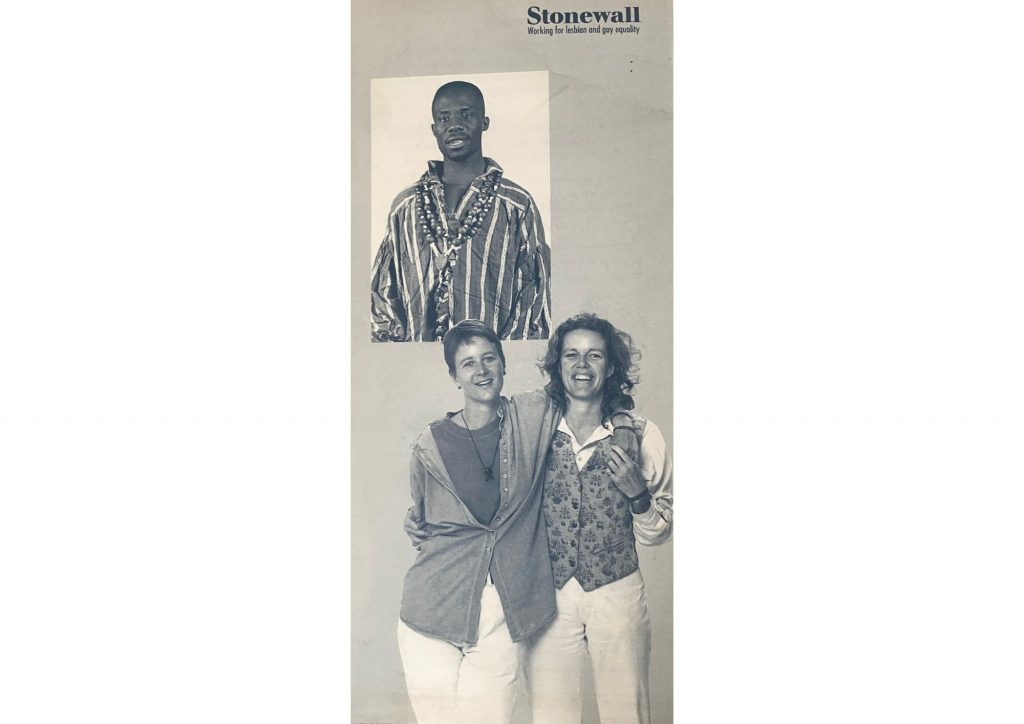
Fiona Cunningham-Reid on a Stonewall pamphlet
During those early years, London felt like a liberating place for an out lesbian woman, she said, adding: “At every protest you’d meet fellow lesbians. At night you just went out. There was the dreaded lesbian club Gateways, off the King’s Road, which was really sleazy. You went down a dank stairwell and this woman called Smithy used to open it up and see if she’d let you in.
“Hampstead’s Women’s Pond was a great place to meet lesbians on a Sunday morning.”
Today, Ms Cunningham-Reid is making a film about artists Heather Ackroyd and Dan Harvey. She lives with her partner and their two dogs, swims in the ponds every morning and is always pleased to see the many gay couples kissing
